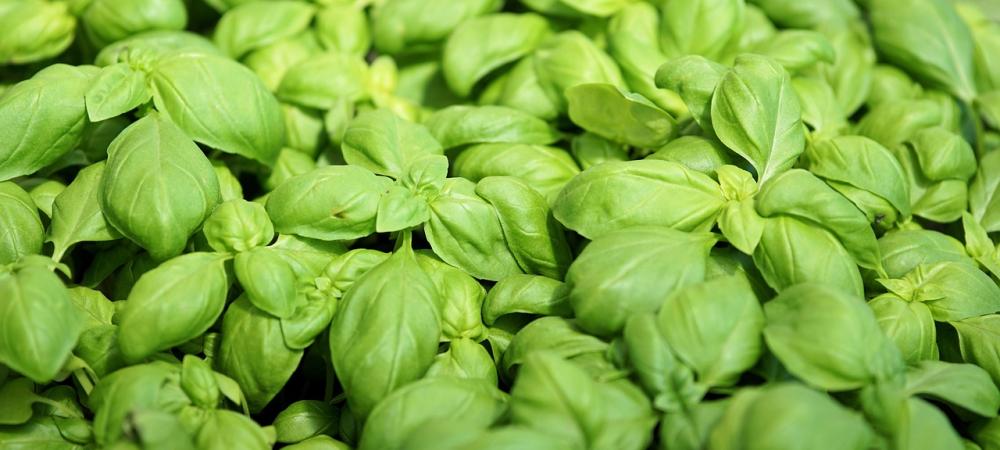Best Pest-Repelling Plants in Des Moines, IA

As spring ushers in vibrant colors and renewed life, Des Moines homeowners can take advantage of this season to not only beautify their yards but also keep pests at bay naturally. Incorporating pest-repelling plants into your landscaping not only adds aesthetic appeal but also reduces the need for harmful chemicals and pesticides. In this guide, we'll explore some of the best plants for Des Moines homeowners to plant in their yards this spring to deter pests effectively.
Basil (Ocimum basilicum)
Basil is not just a delicious herb for cooking; it also repels mosquitoes, flies, and other flying insects. Planting basil near outdoor seating areas or entry points to your home can help minimize insect disturbances during outdoor gatherings.
Catnip (Nepeta cataria)
While catnip may attract cats, it repels pests like mosquitoes, cockroaches, and flies. Planting catnip in strategic areas of your yard can help create a pest-free zone without resorting to harmful chemicals.
Chives (Allium schoenoprasum)
Chives not only enhance culinary dishes but also deter pests like aphids, Japanese beetles, and carrot flies. Their onion-like scent is unappealing to many insects, making them a beneficial companion plant for vegetable gardens.
Chrysanthemums (Chrysanthemum spp.)
Chrysanthemums, better known as mums, contain a natural insecticide called pyrethrin, which is commonly used in commercial bug sprays. These flowers repel a wide range of pests, including ants, roaches, ticks, and silverfish. Incorporating chrysanthemums into your landscaping not only adds beauty but also provides ongoing pest control benefits.
Citronella Grass (Cymbopogon nardus)
Citronella grass is famous for its essential oil, which is commonly used in mosquito-repellent products. Planting citronella grass in your yard or in pots around outdoor seating areas can help deter mosquitoes and create a more enjoyable outdoor experience.
Fennel (Foeniculum vulgare)
Fennel is not only a favorite herb for cooking but also a natural deterrent for pests such as slugs, snails, and aphids. Its feathery foliage and yellow flowers add visual interest to gardens while providing pest control benefits.
Garlic (Allium sativum)
Garlic is well-known for its culinary uses and also acts as a natural insect repellent. Planting garlic around the perimeter of your garden or near susceptible plants can deter pests like aphids, cabbage worms, and spider mites.
Lavender (Lavandula)
Lavender is not just a fragrant addition to your garden; it's also an excellent natural repellent for mosquitoes, flies, moths, and even mice. Its strong scent confuses and repels pests, making it a must-have plant for any Des Moines homeowner looking to keep their outdoor space comfortable and bug-free.
Lavender Cotton (Santolina chamaecyparissus)
Lavender cotton, also known as santolina, is a drought-tolerant plant with aromatic silver-green foliage. It repels pests such as moths, ants, and fleas, making it a great addition to rock gardens or sunny borders.
Lemon Balm (Melissa officinalis)
Lemon balm, with its citrusy scent, acts as a natural repellent for mosquitoes, gnats, and other flying pests. It's easy to grow and can be used in teas or as a culinary herb while serving as a pest-deterring plant in your yard.
Lemon Grass (Cymbopogon citratus)
Similar to lemon balm, lemongrass emits a strong citrus aroma that repels mosquitoes and other insects. Planting lemongrass in pots or along borders can create a natural barrier against pests while adding a refreshing fragrance to your outdoor space.
Lemon Thyme (Thymus citriodorus)
Lemon thyme, with its citrusy fragrance, repels mosquitoes, ticks, and other flying insects. It's a low-maintenance herb that can be grown in containers, along pathways, or as ground cover to keep pests away.
Marigolds (Tagetes spp.)
Marigolds are known for their vibrant colors and strong smell, which deter a variety of pests, such as mosquitoes, aphids, and nematodes. Planting marigolds around vegetable gardens or in flower beds can help protect your plants from destructive insects while adding a pop of color to your landscape.
Mint (Mentha spp.)
Mint plants, such as peppermint or spearmint, not only provide a refreshing scent but also deter pests like ants, mosquitoes, and rodents. However, mint can spread rapidly, so it's often best grown in containers to prevent it from taking over your garden.
Nasturtiums (Tropaeolum majus)
Nasturtiums are not only colorful and edible but also repel pests like aphids, beetles, and squash bugs. Planting nasturtiums near susceptible plants can act as a natural barrier against destructive insects while enhancing the visual appeal of your garden.
Pyrethrum (Tanacetum cinerariifolium)
Pyrethrum is a natural insecticide derived from the dried flower heads of Tanacetum cinerariifolium. It effectively repels mosquitoes, ants, roaches, and other pests, making it a valuable addition to gardens seeking organic pest control solutions.
Rosemary (Rosmarinus officinalis)
Beyond its culinary uses, rosemary is a versatile plant that repels mosquitoes, cabbage moths, and carrot flies. Its woody stems and fragrant leaves make it a beautiful and functional addition to gardens, borders, or even in pots on patios and decks.
By incorporating these pest-repelling plants into your Des Moines yard this spring, you can create a harmonious and naturally pest-resistant environment. Remember to consider factors such as sunlight, soil conditions, and space availability when choosing and planting these beneficial plants. With thoughtful landscaping choices, you can enjoy a beautiful, pest-free outdoor space throughout the season.
Get Professional Mosquito Control
If you want to keep mosquitoes at bay this summer, look no further than Midwest Pest Control. Our team of local Des Moines mosquito exterminators will work with you to create a customized treatment plan. Contact our team today to learn more.
